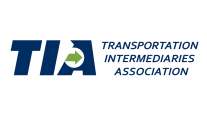Some Fleets, 3PLs Turn to Near-Shore Staffing to Address Shortage of Office Workers

While the freight transportation industry has struggled for years to recruit and retain truck drivers and maintenance technicians, many companies are facing another labor challenge — a shortage of entry-level office workers.
As it becomes increasingly difficult to find, hire and keep employees who respond to customers’ calls, dispatch drivers and pursue new business, fleets and third-party logistics providers are pursuing a range of strategies to address the labor shortfall, including turning to staffing agencies that connect them with logistics workers overseas.
Amid a vibrant job market that tends to favor job seekers, transportation companies often find themselves competing with each other — or with other industries — for the same talent, transportation executives said.

Saffro
In areas close to transportation hubs such as Chicago, Denver and St. Louis and near the major ports, there’s a high number of transportation and logistics companies trying to lure young professionals already involved in support, sales or dispatch roles, said Charlie Saffro, founder and executive recruiter at CS Recruiting.
Third-party logistics providers often want to hire dispatchers, sales personnel and other support staff with one to three years of experience working for their competitors, Saffro said. However, efforts to bring these candidates on board tend to have limited success, she added.
“Being in Chicago, we are in the hub of the 3PL world,” Saffro said. “There is so much talent in Chicago. There are so many options available for them. It’s very saturated.”
As a result, she said, “there’s a big sense of entitlement among young job seekers.”
Unless the commute is better, they dislike their bosses at their current jobs or the client can offer significantly more money or jobs with supervisory or management roles, workers are not likely to make these lateral moves, Saffro said.
Saffro said she encourages clients to look at hiring entry-level candidates when possible, then groom and train them to take on the roles they need to fill. Still, on average, employees last an average of only 18 months on their first job, she added, so companies can be reluctant to spend the time necessary, only to have that person move on soon after they finish their training.
While industry experts and executives agreed there is an extensive labor shortfall among entry-level support personnel, different strategies have emerged for dealing with the need to fill those positions.
Robert Cadena, founder and CEO of Lean Staffing Solutions, believes near-shore staffing that utilizes workers in the South American country of Colombia can offer companies an easier and faster way to augment their current staffing and meet future needs.
Cadena, who moved from Germany with his family to Colombia and grew up in that country, said contrary to many misconceptions about Colombia and its people, they are pro-American. Colombians are eager to overcome their country’s past violent history and dispel myths forged by popular movies and TV shows of the ’70s and ’80s, he said, adding that they possess a genuine desire to work for U.S. companies.

Jordan Reber of ARL Network (left) and Robert Cadena of Lean Staffing Solutions visit the LSS office in Barranquilla, Colombia. The staffing agency handles paperwork for ARL, enabling the company to add more agents and trucks. (Lean Staffing Solutions)
Trucking companies, freight brokers and 3PLs often find it difficult to interest Americans in these important entry-level jobs, particularly if they need individuals to rotate a second or third shift one Saturday a month. But Colombians see these jobs not only as opportunities to further develop their bilingual skills, but also to start careers in the transportation or logistics industries.
“That’s why we get so many candidates who studied in a bilingual school,” Cadena added.
Lean Staffing Solutions, which opened several years ago with a single office in Cartagena, Colombia, now has 650 employees and has opened offices in Barranquilla and Medellin. The company soon will open a fourth office in Bogota, he said.
Cadena believes his company’s success in matching Colombian workers with American companies lies in how well those companies work to make the Colombians feel part of their team. He advises companies to look at any near-shore or offshore staffing solution as an extension of their existing operation, not as a replacement.
It’s important for companies to come to Colombia, see their employees and train them “so they can become fully vested in making sure this works,” Cadena said.
Jeff Maser, executive vice president at Smith Transportation Services Inc., a Sunrise, Fla.-based less-than-truckload and truckload carrier, said Cadena’s approach has worked well for his company’s operation.
About 12 years ago, Maser said his company began using a transportation management system, which required a lot of data entry.

Maser of Smith Transportation Services says near-shore staffing with logistics workers in Colombia have helped his fleet handle an increase in business and data-input tasks. (Smith Transportation Services)
Smith Transportation found it difficult to hire people who could do the work for what the company could pay.
“When we did find someone, they would only last about a month or two before they would quit because they found the work to be tedious or they wanted a raise in pay,” he said.
That’s when Cadena approached the fleet about having his employees take over some of the data-entry tasks and asset-tracking work. The timing was crucial because as the economy was recovering from the Great Recession, the company’s freight business was picking up.
Lean Staffing’s personnel joining his company’s team helped the fleet handle the additional paperwork generated by the increase in business.
“The loyalty level and the turnover rate are amazing,” Maser added. “I still have the same employees I have had for seven years. And they are all among my top employees.”
Jordan Reber, executive vice president at ARL Network, and Mike Foy, executive vice president at Visible Supply Chain Management, also said the program produced impressive results for their companies.

Personnel at Lean Staffing Solutions’ office in Barranquilla, Colombia, handle office logistics tasks such as processing invoices, bills of lading and other paperwork. (Lean Staffing Solutions)
“Before we started with Lean Staffing, we barely had enough people to handle the paperwork from the 500 or so trucks we had in our fleet,” Reber said. “We knew that to handle the expected growth in our fleet of 50 or 60 trucks, we were going to need more people onboard.”
ARL Network, which comprises ARL Transport and ARL Logistics, is a provider of intermodal drayage and other trucking and logistics services.
Where a trucking company or brokerage firm is located can affect its ability to find, hire and retain employees, Visible Supply Chain Management’s Foy said.
“Our primary offices are located in Salt Lake City and Denver, which both have really, really low unemployment and highly educated work forces,” he said. “With Salt Lake City, in particular, and Denver, to a lesser extent, really focused on technology, what you’re finding is that it’s challenging to hire and keep employees.”
Oftentimes, jobs at transportation companies aren’t seen as desirable as ones with tech companies and firms such as Amazon, he added. “There’s just a lot of competition among companies for good employees.”
Salt Lake City-based Visible Supply Chain Management ranks No. 44 on the Transport Topics Top 50 list of the largest third-party logistics firms in North America.
The competition for workers can be intense not only in transportation and warehousing, but also in industries such as construction.
Indeed, figures from the Bureau of Labor Statistics showed that on the last business day of March, total U.S. job openings rose to 7.5 million, an increase of 346,000 from the previous month. The largest increases occurred in the transportation, warehousing and utilities industries, which accounted for 87,000 job openings — about a quarter of the total.
The number of hires, meanwhile, saw little change at 5.7 million in March for a hire rate of 3.8%, according to BLS. Total number of separations remained little changed at 5.4 million for a turnover rate of 3.6%.
While near-shore staffing through Lean Staffing Solutions has helped companies such as ARL and Visible Supply Chain Management meet the needs of their customers, transportation companies should be aware that not all staffing agencies offer the same level of service, CS Recruiting’s Saffro said.
There can be serious drawbacks to going with a near-shore or offshore staffing solution, she added.
“I see value in this model if used properly,” Saffro said. “However, the approach can lead to significant problems for those who don’t take into consideration the language and cultural barriers.”

Foy
On the other hand, Foy said that without enough support staff, it would be that much more difficult for Visible Supply Chain Management to provide the services customers expect, such as track and trace, which has a significant effect on customer satisfaction.
Near-shore staffing has made it easier to ensure those services are offered on a timely basis, he said.
“Let’s just say under best-case scenario, assuming everything goes right, it takes about three months to get somebody onboard,” Foy added. “With Lean Staffing, we’ve found that we can have somebody in place much sooner.”




